Marwaan Macan-Markar,
Inter Press Service News Agency
BANGKOK , Jan 8 (IPS) - To many, Cambodian Prime Minister Hun Sen comes across as a man in a hurry to prove his critics right, when they refer to him as a ‘political thug'.
Recent arrests of leading human rights advocates in Cambodia are turning into a trend in that South-east Asian country as Hun Sen systematically silences those accused of 'defaming' the premier.
In the space of five days ending Wednesday, three outspoken critics of the government were arrested on charges of criminal defamation for a banner erected in Phnom Penh to celebrate, of all occasions, Human Rights Day on Dec. 10.
The banner in question had handwritten comments allegedly accusing Hun Sen of being a communist and whose close dealings with Vietnam had resulted in a questionable transaction that saw Cambodia lose land to its powerful neighbour to its east.
Those arrested included leading members of the respected Cambodian Centre for Human Rights (CCHR) -- Kem Sokha, its president, and Pa Nguon, its acting director. Another victim was Yeng Virak, director of the Community Legal Education Centre, which is a non-governmental organisation (NGO), like the CCHR.
This is yet another indication of ''the Cambodian government's use of defamation charges to silence and intimidate its opposition and critics,'' charged the Hong Kong-based Asian Human Rights Commission.
Other human rights lobbies, such as Human Rights Watch (HRW) and Amnesty International, also condemned Phnom Penh's actions. ''The arrests have already had a harmful effect on the human rights community in Cambodia, which is operating in a climate of fear and uncertainty, unsure of what speech is allowed and what is prohibited,'' declared the New York-based HRW.
''This disturbing trend threatens to undo the progress made through painstaking efforts over the last decade to build an open and just society based on the rule of law,'' Louise Arbour, United Nations High Commissioner for Human Rights, said Wednesday. ''Cambodia had signed all key international human rights treaties, including those guaranteeing freedom of expression, association and assembly.''
And Phnom Penh's efforts to pooh-pooh critics, saying the arrests were not the work of the government and the police were following their duties, will find few takers. Not only is Hun Sen's Cambodian People's Party (CPP), the dominant player on the political stage, but the government has been content to use strong-arm tactics and other measures to influence the actions of the criminal justice system.
Moreover, these arrests bring to nearly 10 the number of Cambodians who have been accused and arrested for criminal defamation after openly criticising the government about a border agreement with Vietnam in the past three months.
Among those charged and detained are journalist Mam Sonando, owner of the Beehive FM 105 radio station, Rong Chhun, head of the Independent Teachers' Association, Chean Mony, president of the Free Trade Union Workers, Ea Channa, a leading member of the Student's Movement for Democracy, and Men Nath, president of the Civil Servants Association.
''Following Sonando's arrest (in October), many of Cambodia's leading human rights advocates, trade union activists and opposition party members have fled the country or gone into hiding,'' the South-east Asian Press Alliance (SEAPA), a regional media watchdog, stated this past week.
Other Cambodia watchers say that members from nearly 60 other groups belonging to the country's nascent civil society movement could be hounded by Phnom Penh's strongarm tactics, since all these groups were part of the Human Rights Day activities last month that resulted in the crackdown.
Hun Sen's actions can only help to cement a belief that has gained currency since Cambodia's last parliamentary elections that the premier is more obsessed to retain his hold on power than help guide his battle-scarred country towards democracy.
It is a reputation that can harm the Association of South-east Asian Nations (ASEAN), the 10-member regional grouping of which Cambodia is a member. Other constituents of the bloc include Vietnam, Laos, Burma, Thailand, Malaysia, Singapore, Brunei, Indonesia and the Philippines.
ASEAN is desperately trying to shed its image as a breeding ground for dictators, autocrats and strongmen and carve out a new impression as a regional body that respects the law, good governance and human rights.
Hun Sen is the longest-serving head of government in the region, having become prime minister of his country over 20 years ago, when it was under Vietnamese occupation. Such long stints by autocratic leaders were an ASEAN trend exemplified by Suharto in Indonesia, Ferdinand Marcos in the Philippines, Lee Kwan Yew in Singapore and Mahathir Mohamed in Malaysia.
Some analysts have even begun to draw parallels between Hun Sen and the brutal military regime of another ASEAN country, Burma. Other say his methods are more similar to that of oppressive measures pursued by ASEAN's communist twins, Vietnam and Laos.
It is a reality that should come to haunt the United Nations and the international community -- more so if the Cambodian situation worsens -- since much was invested by both to help this country rise out of decades of a brutal war after a 1991 peace agreement.
The first parliamentary election in post-war Cambodia in 1993 was portrayed as a significant milestone on the country's journey towards respecting human rights and becoming democracy.
But during that election and the ones that followed, Hun Sen asserted his might to secure victory for himself and his party in the 123-member National Assembly.
Since then, his determination to stay in power at the expense of his political opponents has not dimmed. Among those he went after -- also for criminal defamation -- is Sam Rainsy, head of the country's opposition party in parliament, who fled Cambodia last February.
''This is the worst time for democracy in Cambodia, particularly with regards to freedom of _expression,'' Kulachada Chaipipat of SEAPA told IPS. ''The hope of a new political culture is being threatened and we may see the country slipping back into the old era of fear.'' (END/2006)
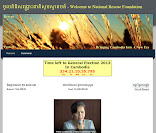
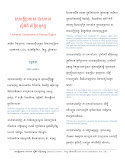











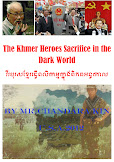


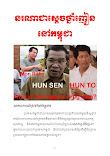


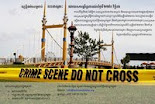



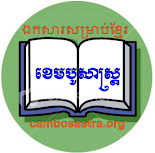

No comments:
Post a Comment